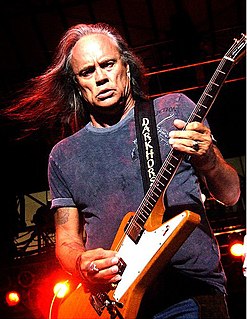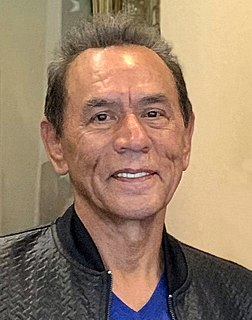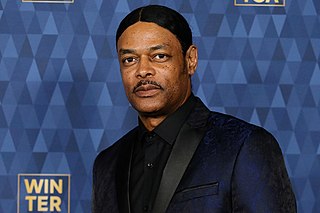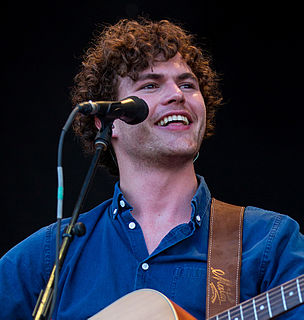A Quote by Rickey Medlocke
I'm Native American, so the racial thing kind of hits home with me.
Quote Topics
Related Quotes
You see the one thing I've always maintained is that I'm an American Indian. I'm not a Native American. I'm not politically correct. Everyone who's born in the Western Hemisphere is a Native American. We are all Native Americans. And if you notice, I put American before my ethnicity. I'm not a hyphenated African-American or Irish-American or Jewish-American or Mexican-American.
I am honored to have Ajamu Baraka as a running mate. I think he brings enormous credibility in the disenfranchised communities, not just African American but Latino, Asian American and Native American. He is a recognized advocate for racial justice, economic justice and human rights, and I think this conversation is only just begun. It is very important.
As a first-generation "Asian American woman," for one thing, I knew there was no such thing as an "Asian American woman." Within this homogenizing labeling of an exotica, I knew there were entire racial/national/cultural/sexual-preferenced groups, many of whom find each other as alien as mainstream America apparently finds me.
All roads lead to 'American Pie.' 'As American as apple pie' was the saying. It was some kind of a big American song that I wanted to write, which would be a conclusion for my show and bring all the songs home, which it still does. I can go anywhere I want with American music and come home to that. And it all makes sense.
I have four relatively small children, and around fourth grade, they start doing big projects on Native Americas: everything is Native Americans in elementary school. Do you know how many Native American dresses I've sewn, on and on; it's a full yearlong study. And then never again. As journalists, we never even cover Native Americans.




































